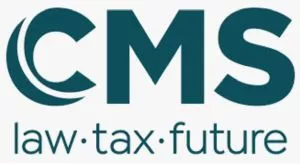- within Finance and Banking topic(s)
- within Media, Telecoms, IT, Entertainment and Wealth Management topic(s)
Introduction
On 24 January 2025, the Commission de Surveillance du Secteur
Financier (the "CSSF") issued a press release (only in
French) on the application of the Corporate Sustainability
Reporting Directive (the "CSRD") and the European
Sustainability Reporting Standards ("ESRS") (the
"Press Release"), replacing the former CSSF communication
on 10 January 2025.
The Press Release is addressed to (i) investment fund managers
incorporated under Luxembourg law and subject to CSSF circular
18/698 and registered alternative investment fund managers pursuant
to Article 3(2) of the law of 12 July 2013 on alternative
investment fund managers ("IFMs") as well as (ii) their
approved statutory auditors ("REAs").
This publication aims to bring the attention of IFMs to the entry into force of CSRD and the possibility for such IFMs to fall within the scope of this new sustainability reporting regulation. The CSSF namely reminds the criteria and thresholds pertaining to the size of the entities and provides guidance on the application of CSRD to the IFMs.
The CSRD
The CSRD entered into force on 5 January 2023 with the aim of modernizing and strengthening the rules on the social and environmental information that companies must report.
Companies subject to the CSRD are required to prepare and publish annually a sustainability report in accordance with the ESRS (the "Sustainability Report"), which are a set of standards covering the full range of environmental, social, and governance issues, including climate change, biodiversity and human rights.
The sustainability reporting requirements introduced by the CSRD apply to undertakings governed by the law of a Member State of the European Union (the "EU") that are large undertakings, Small and Medium-sized Enterprises (excluding micro-undertakings) with transferable securities admitted to trading on an EU regulated market, and parent undertakings of large groups. Additionally, the sustainability reporting requirements apply to undertakings governed by the law of a third country that have transferable securities admitted to trading on an EU regulated market (excluding micro-undertakings) or that conduct business in the territory of the EU above certain thresholds.1
CSRD applies gradually to the different in-scope entities according to their size. In that respect, the CSSF reminds that, while the transposition law is being adopted2, large companies must publish their first Sustainability Report in 2026, for the financial year starting on or after 1 January 2025.
Relevant criteria for IFMs
I. Legal forms
The CSSF points out that IFMs may fall within the scope of the CSRD when they are organized under one of the Luxembourg legal forms listed in Annexes I and II of Directive 2013/34/EU (the "Accounting Directive"), namely: SA, SCA and Sàrl, as well as SENC and SCS, where all direct or indirect partners with unlimited liability have de facto limited liability (e.g., an SCS in which the general partner is an Sàrl).
II. Size
The CSSF highlights that the Grand-Ducal Regulation of 25 October 2024 has transposed the Commission Delegated Directive (EU) 2023/2775 of 17 October 2023, which raised the size criteria in relation to the categorization of companies and groups under the Accounting Directive.
As a result, large companies, as defined by the Accounting Directive, are those which at the balance sheet date, for two consecutive financial years, exceed the limits of at least two of the three following thresholds: balance sheet total above €25 Mio, net turnover above €50 Mio and average number of employees above 250.
III. Net turnover and average number of employees
The CSSF reminds the definition of net turnover, pursuant to Article 48 of the law of 19 December 2002 on the Trade and Company Register as comprising "the amount resulting from the sale of products and the provision of services, after deduction of sales reductions, value added tax and other taxes directly linked to turnover".
In this context, the CSSF advises IFMs and their REAs to include, in the calculation of their net turnover, inter alia, commissions received in connection with the management of investment funds and, where applicable, discretionary management and ancillary services. It is worth noting that commissions paid, where applicable, by the IFM may not be deducted from the turnover.
As for the average number of employees during the financial year, the CSSF advises to take into account the number of staff employed on a full-time basis and on average during the financial year, whether at the head office or in any branch of the entity.
IV. Exemptions
The CSSF concludes by addressing the exemption criteria set out in the CSRD. Exemptions from preparing a sustainability report apply to:
- entities which are unlisted subsidiaries of an EEA-based company and are included in the sustainability report prepared and published by their parent company and
- entities that are unlisted subsidiaries of a company based in a third country, provided that their parent company has prepared and published a sustainability report in accordance with the ESRS standards.
The CSSF draws the attention of entities to the existence of support and guidance measuresfor companies through the implementation of training dedicated to the CSRD theme and the ESRS standards.
In view of the above, IFMs are urged to proceed with the CSRD applicability assessment, if not already done, and reach out to their REAs where applicable.
What's next?
To date, the CSRD is in the process of being transposed into Luxembourg law. Our sustainability experts Aurélien Hollard and Julie Pelcé will continue to monitor the progress of the legislative process and keep you updated with the latest developments. In the meantime, please do not hesitate to contact us if you have any questions.
Footnotes
1. Article 4(5) Directive 2004/109/EC ("Transparency Directive") (which cross-refers to Articles 19a and 29a Accounting Directive) and Article 40a Accounting Directive.
2. Bill of Law N°8370 Dossiers parlementaires | Chambre des députés du grand-duché de Luxembourg
The content of this article is intended to provide a general guide to the subject matter. Specialist advice should be sought about your specific circumstances.



